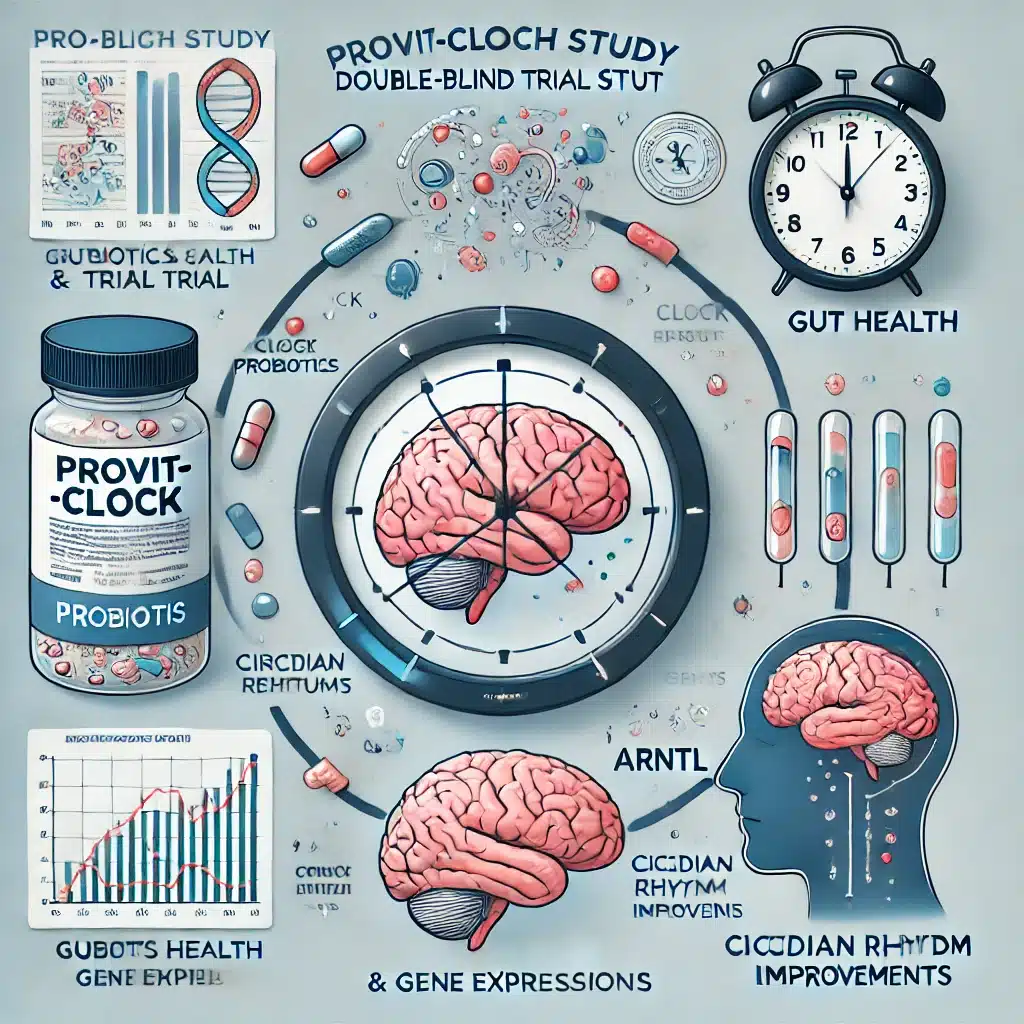Probiotics Alter Clock Gene Expression in Depression to Improve Mood (2024 Study)
Probiotic treatment may influence core clock gene expression and metabolites in individuals with major depressive disorder (MDD), potentially linking gut microbiota to circadian rhythms and mood regulation. Highlights: CLOCK Gene Expression: The expression level of the CLOCK gene significantly increased only in individuals receiving probiotic treatment, suggesting a direct impact of probiotics on circadian rhythms. …










